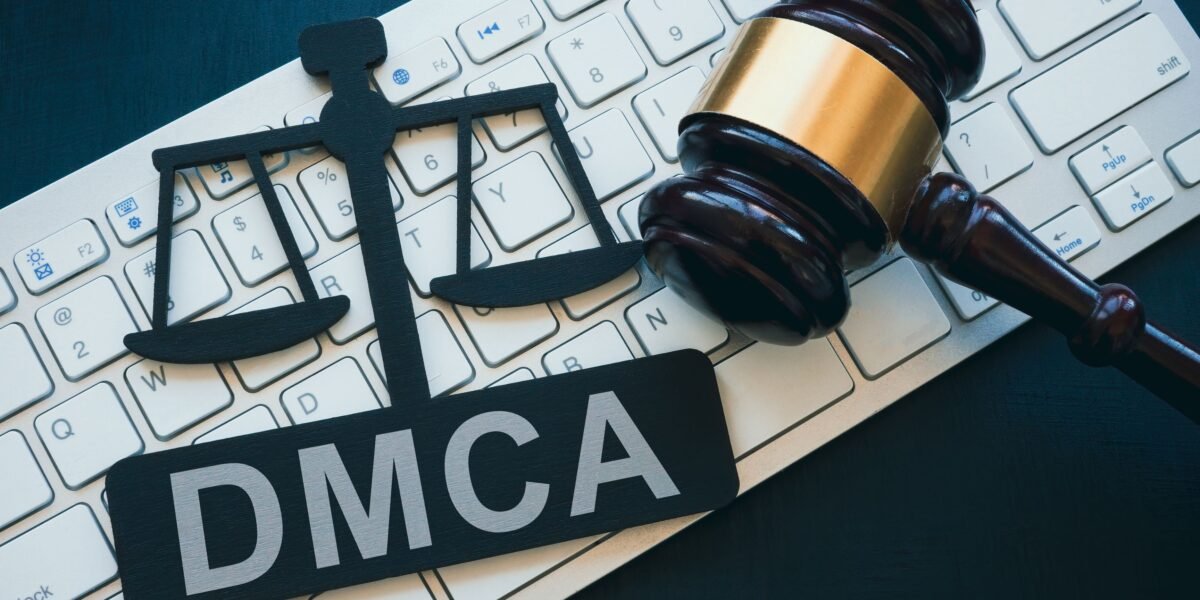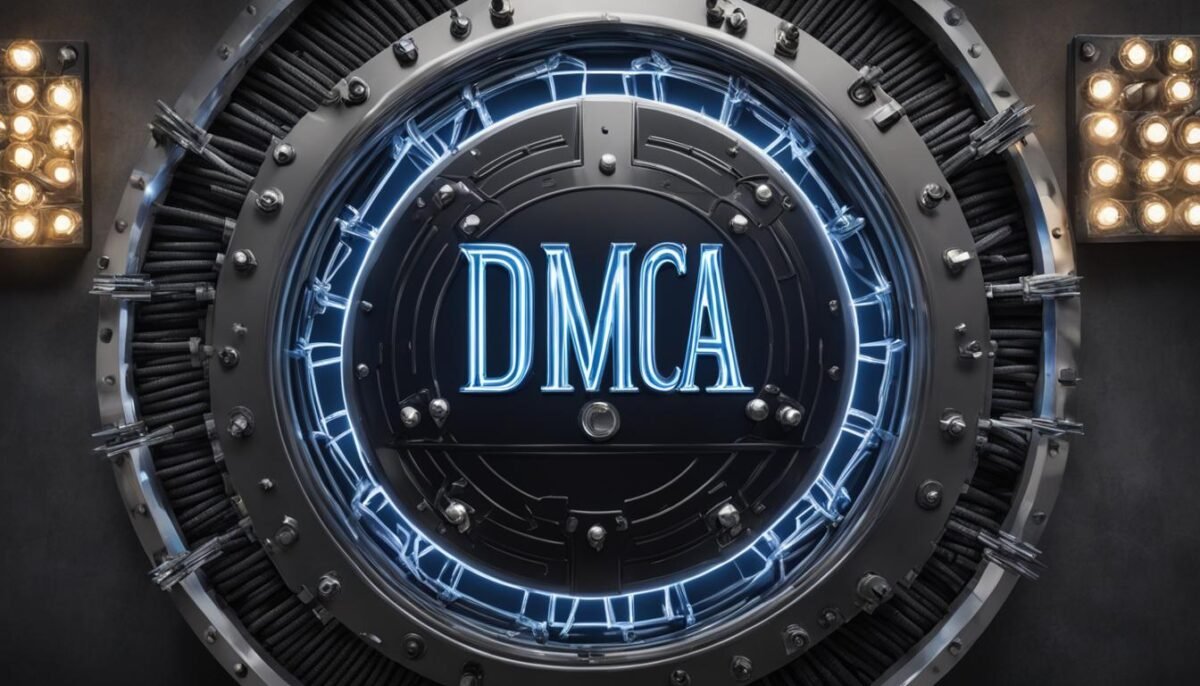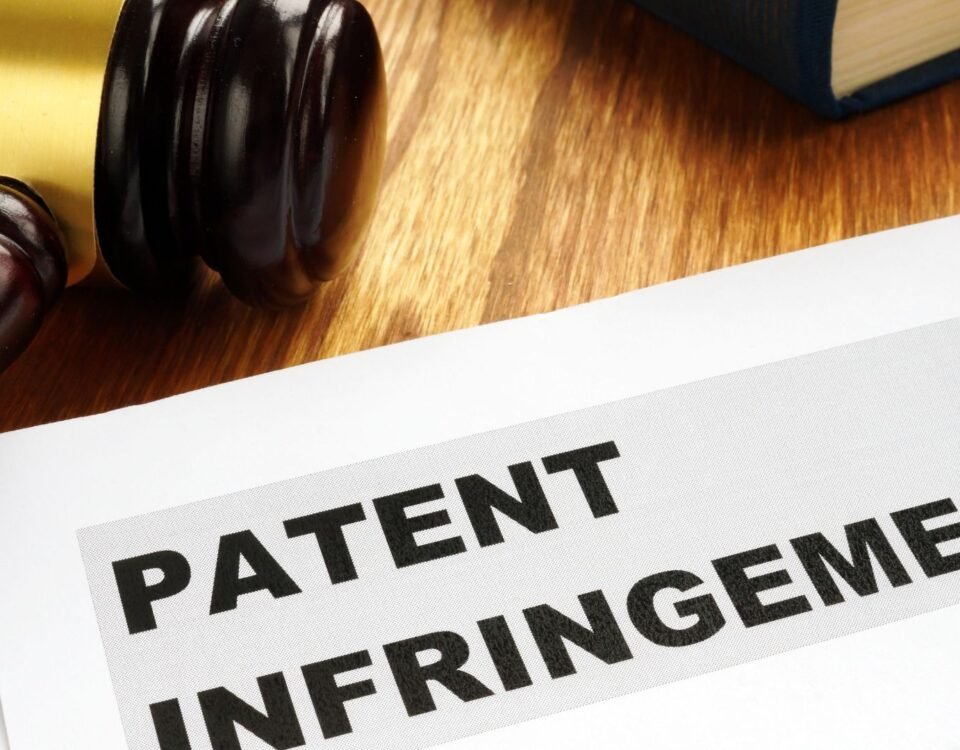
Maximize Savings with Fulfillment Fee Rebates
15 January 2024
Amazon Ungating – How To Get Ungated On Amazon Using Advanced Strategies
15 January 2024If you’re an Amazon seller, you need to be prepared for the possibility of receiving a DMCA takedown notice.
These notices, based on the Digital Millennium Copyright Act (DMCA), can result in your listing being quickly removed, regardless of the validity of the claim.

To defend your account, it’s crucial to understand the steps involved in responding to a DMCA takedown notice and filing a counter notification.
Key Takeaways:
- As an Amazon seller, you may receive a DMCA takedown notice, leading to the removal of your listing.
- Understanding the DMCA and Amazon’s obligations is essential when facing a takedown notice.
- Filing an effective counter notification requires careful attention to the DMCA’s requirements.
- Defending against a meritless DMCA claim can be challenging, but seeking legal advice can help.
- Protecting your intellectual property rights and responding appropriately to infringement claims is vital on Amazon.
Understanding the DMCA and Provider’s Obligations
The Digital Millennium Copyright Act (DMCA) sets forth specific obligations for online service providers like Amazon when it comes to copyright infringement.
Under the DMCA, service providers are required to respond “expeditiously” to notices of copyright infringement.
This means that when Amazon receives a DMCA takedown notice, they must promptly take down or disable access to the allegedly infringing material.
Additionally, providers like Amazon have an obligation to notify the subscriber (the seller) that the material has been removed.
This notification gives the seller the opportunity to file a counter notification if they believe the takedown was a mistake.
Counter Notification Requirements
If you receive a DMCA takedown notice on Amazon, and you believe the takedown was unwarranted, you have the option to file a counter notification.
However, it’s crucial to understand the specific requirements set forth by the DMCA for a valid counter notification:
- A statement of good faith belief that the material was removed due to mistake or misidentification.
- Your signature.
- Identification of the removed material and its previous location.
- A statement under penalty of perjury that you have a good faith belief the material was wrongly removed.
- Your contact information.
- Consent to the jurisdiction of the Federal District Court and acceptance of service of process.
Filing a counter notification can lead to the reinstatement of the removed material.

However, it’s important to note that if the claimant disagrees with your counter notification, they may choose to file a lawsuit seeking a court order.
| DMCA Obligations | Explanation |
|---|---|
| Remove or disable access to infringing material | Service providers like Amazon must promptly respond to DMCA takedown notices by taking down or disabling access to the allegedly infringing material. |
| Notify the subscriber (seller) | Providers are obligated to notify the seller that the material has been removed, giving them the opportunity to file a counter notification. |
| Respond “expeditiously” | The DMCA requires providers to respond to notices of infringement in a timely manner. |
Understanding the DMCA and the obligations of service providers like Amazon is crucial when dealing with copyright infringement claims.
By knowing your rights and the proper procedures, you can effectively navigate the DMCA takedown notice process and protect your business.
Filing a Counter Notification
If your listing has been removed due to a DMCA takedown notice on Amazon, you have the option to file a counter notification to challenge the claim.
Filing a counter notification allows you to present your case and potentially reinstate the removed material.
To ensure your counter notification is effective, it’s important to meet the following requirements:
- Include Your Signature: Sign the counter notification with your full legal name to verify its authenticity.
- Identify Removed Material: Clearly identify the material that was removed and provide its previous location on the Amazon platform.
- Statement Under Penalty of Perjury: Include a statement stating that, under penalty of perjury, you believe the removal of the material was a mistake. This affirms that you genuinely believe your listing does not infringe on any copyrights.
- Contact Information: Provide your complete contact information, including your name, address, telephone number, and email address. This allows Amazon and the claimant to reach you regarding the counter notification.
- Jurisdiction of Federal District Court: Consent to the jurisdiction of the Federal District Court in the district where you are located. This ensures that legal matters related to the counter notification can be appropriately resolved.
- Accept Service of Process: Accept service of process, which means that you agree to receive legal documents related to the counter notification.
Once you have compiled all the necessary information, carefully draft and submit your counter notification to comply with the DMCA requirements.
It’s vital to take this step seriously and ensure that your counter notification is complete and accurate to increase your chances of reinstating your removed material.

| DMCA Counter Notification Requirements | Description |
|---|---|
| Include Your Signature | Sign the counter notification with your full legal name. |
| Identify Removed Material | Clearly state the material that was removed and provide its previous location on Amazon. |
| Statement Under Penalty of Perjury | Include a statement affirming that you believe the removal was a mistake, under penalty of perjury. |
| Contact Information | Provide your complete contact information for communication regarding the counter notification. |
| Jurisdiction of Federal District Court | Consent to the jurisdiction of the Federal District Court in your location. |
| Accept Service of Process | Agree to accept legal documents related to the counter notification. |
Now it’s time to understand intellectual property infringement and copyright infringement on Amazon and how this relates to DMCA takedown.
Intellectual Property Infringement on Amazon
Amazon’s terms of use explicitly prohibit intellectual property infringement, but the responsibility to identify and report such infringements primarily falls on individual users.
Unfortunately, this can lead to an increase in frivolous claims and abusive tactics by competitors.
Therefore, it is essential for sellers to be proactive in monitoring and protecting their intellectual property rights on Amazon.
To provide an extra layer of protection, sellers can consider registering their trademarks and copyrights.
Registering these assets can provide legal evidence of ownership and strengthen your position in case of any intellectual property disputes on the platform.
However, it’s important to note that even with these protections in place, sellers must remain vigilant in identifying potential intellectual property infringement and taking appropriate action to protect their rights.
Common Examples of Intellectual Property Infringement on Amazon
Intellectual property infringement on Amazon can take various forms, including:
- Trademark infringement: Unauthorized use of a brand name, logo, or slogan that is similar to or identical with a registered trademark.
- Copyright infringement: Unauthorized use, reproduction, or distribution of copyrighted material, such as images, product descriptions, or written content.
- Patent infringement: Selling or offering products that infringe on patented inventions without proper authorization.
Reporting Intellectual Property Infringement on Amazon
If you identify any potential intellectual property infringement on Amazon, it is crucial to take swift action to protect your rights.
Amazon provides a platform for reporting infringement through its Intellectual Property Rights (IPR) Complaint Form.
By submitting a detailed complaint, including evidence of your ownership and the alleged infringement, Amazon’s Intellectual Property team can investigate the issue and take necessary actions.
Additionally, you may also consider reaching out to an intellectual property attorney who specializes in e-commerce to guide you through the reporting process and provide legal advice tailored to your specific situation.
Their expertise can be invaluable in navigating the complexities of intellectual property rights and ensuring your interests are well-protected.
| Advantages of Registering Trademarks and Copyrights on Amazon | How It Benefits Amazon Sellers |
|---|---|
| 1. Legal evidence of ownership | Establishes your rights and helps prevent others from infringing on your intellectual property. |
| 2. Enhanced protection | Positions you favorably when dealing with infringement claims and strengthens your legal standing. |
| 3. Exclusivity | Allows you to exclusively use and sell products under a registered trademark, reducing competition. |
| 4. Better brand recognition | Helps build and maintain customer trust by protecting your brand identity. |
Responding to Intellectual Property Infringement Claims
If you find yourself facing an intellectual property infringement claim on Amazon, it’s essential to know the necessary steps to resolve the situation.
Responding to a takedown notice requires a strategic approach to protect your listings and address the allegations effectively.
If you firmly believe that your content does not infringe on any intellectual property rights, you can explain this in your response.
Clearly articulate why the claim lacks merit and provide evidence or documentation to support your position.
Communicating your case confidently and demonstrating that your content is original and does not infringe on any copyrights or trademarks can help refute the allegations.
In some cases, it may be necessary to request additional information about the alleged infringement.
By seeking clarification regarding the specific content or elements in question, you can address the claim more precisely and determine if any misunderstandings or misidentifications have occurred.
If you suspect that the infringement claim has been filed in bad faith, you have the right to demand that the claimant retract the notice.
Highlight any evidence that suggests the claim is baseless or has malicious intent, and firmly assert your rights as an Amazon seller.
Amazon has its own internal procedures for handling IP infringement claims, and they will review and evaluate the information provided by both parties involved.
However, you also have the option to file counterclaims through the Amazon platform, allowing you to assert your own intellectual property rights and defend against unfounded accusations.

Remember, responding to intellectual property infringement claims requires careful consideration and attention to detail.
It’s in your best interest to consult with trusted legal professionals, such as e-commerce attorneys specializing in intellectual property law, who can provide expert guidance on navigating the process and protecting your rights as an Amazon seller.
Copyright Infringement on Amazon
Copyright infringement is a serious concern on Amazon, especially for artisans and sellers offering handmade products.
It is important to understand the creative elements that may be protected by copyright and take the necessary steps to ensure that you are creating original works.
By doing so, you can safeguard your intellectual property and avoid any allegations of copyright infringement.
If you believe that your copyrighted work has been infringed upon on Amazon, it is advisable to consult with an intellectual property attorney before filing an infringement report.
An attorney can help you understand the legal aspects of your case and guide you through the process of protecting your rights effectively.
Additionally, registering your copyrights can offer added benefits and protection.
Registering your creative works with the U.S. Copyright Office provides a legal record of your ownership and can make it easier to enforce your rights in case of infringement.
Here is a comparison of registered copyrights versus unregistered copyrights:
| Registered Copyrights | Unregistered Copyrights |
|---|---|
| Legal presumption of ownership | No legal presumption of ownership |
| Public record of copyright ownership | No public record of copyright ownership |
| Ability to sue for statutory damages and attorney fees | No ability to sue for statutory damages and attorney fees |
| Enhanced protection against infringers | Limited protection against infringers |
By understanding the importance of copyright protection, consulting with an attorney, and registering your copyrights, you can better protect your creative works on Amazon and ensure that your intellectual property rights are respected.
Small Claims Alternative for Copyright Infringement
The CASE Act, passed by Congress in 2020, introduces a small claims alternative for copyright infringement cases.
This new law grants copyright holders the option to file a small claims case with a four-person board of experts.
Although voluntary, it offers several advantages for Amazon sellers dealing with infringement issues.
By pursuing a small claims case, copyright holders can obtain a filed complaint that can be presented to Amazon to counter fraudulent counter-notices.
This can help strengthen their position and protect their rights on the platform.
Additionally, this alternative process is generally more affordable than pursuing a traditional lawsuit, reducing the financial burden for sellers.
Benefits of the CASE Act:
- Provides a filed complaint to challenge fraudulent counter-notices
- Offers a cost-effective alternative to traditional lawsuits
- Enables virtual hearings, reducing logistical challenges
Consulting an attorney experienced in the CASE Act can prove invaluable for Amazon sellers facing copyright infringement issues.
An attorney can help sellers navigate this new process, provide guidance on building a strong case, and maximize the chances of a favorable outcome.
Consequences of Violating Amazon’s Intellectual Property Policy
Violating Amazon’s intellectual property policy can have serious repercussions for your online business.
Amazon takes intellectual property infringement seriously and has implemented measures to protect the rights of intellectual property owners.
If you are found to have violated Amazon’s intellectual property policy, you may face the following consequences:
- Deactivation of your Amazon shop: Amazon has the authority to deactivate your account and remove your listings if they determine that you have violated their intellectual property policy. This can result in the loss of your entire online business and the termination of your selling privileges on Amazon.
- Risk of legal action: Intellectual property owners have the right to take legal action against sellers who infringe upon their rights. If you are found to have violated someone’s intellectual property, you may face lawsuits, fines, and other legal consequences.
- Reputation damage: Violating intellectual property rights can tarnish your reputation as a seller. Negative customer reviews and public perception can significantly impact your business’s credibility, trust, and future success.
It’s important to understand the potential legal consequences and risks associated with violating Amazon’s intellectual property policy.
Respecting intellectual property rights and responding appropriately to infringement claims is crucial for the longevity and success of your online business.
Seeking Legal Representation for DMCA and Intellectual Property Issues
Given the complexity of DMCA and intellectual property issues on Amazon, it is highly advisable to seek legal representation, particularly when facing infringement claims or defending against them.
An experienced e-commerce attorney with expertise in intellectual property law can guide you through the intricacies of the legal landscape, review important legal documents, and help safeguard your business and rights on Amazon.
When dealing with DMCA takedown notices or intellectual property infringement claims, having a skilled attorney by your side can make all the difference.
They can provide valuable advice on how to appropriately respond, ensuring compliance with copyright and trademark laws.
Additionally, an e-commerce attorney can help you navigate the legal process with confidence, saving you time and stress.
Furthermore, an e-commerce attorney can assist you in understanding your legal rights and responsibilities as an Amazon seller.
They can help you protect your intellectual property and prevent infringement, providing you with peace of mind as you conduct your business online.
Whether you are a seller facing an unjustified claim or you need assistance in pursuing a legitimate infringement case, seeking legal representation is a proactive step towards safeguarding your interests and ensuring a fair resolution.
Don’t underestimate the value of having a knowledgeable attorney who specializes in e-commerce and intellectual property law.
Their expertise can help you navigate the legal landscape effectively and build a strong defense against unwarranted DMCA claims or infringement allegations.
Remember, legal guidance is invaluable when confronting DMCA and intellectual property issues on Amazon. Protect your business and rights by seeking the assistance of an e-commerce attorney today.
Frequently Asked Questions
Now that you know everything about DMCA takedown notice and what to do about it, maybe you still have few more questions, so we’ll address them below.
What are the potential consequences of a meritless DMCA claim?
Defending against a meritless DMCA claim can be confusing and labor-intensive. Sellers may face financial losses and potential account suspension if their listing is wrongly removed. Seeking advice from an e-commerce attorney is recommended to navigate this process and build a strong defense.
How can I protect my intellectual property rights on Amazon?
Sellers on Amazon are responsible for understanding and policing their intellectual property rights. Registering trademarks and copyrights can provide additional protection. It’s important to respect the intellectual property of others and report any infringement to Amazon.
How should I respond to an intellectual property infringement claim on Amazon?
When responding to an infringement claim, sellers should explain why the content is not infringing, request an explanation of the alleged infringement, and demand the claim be retracted if filed in bad faith. Sellers can also file counterclaims through the Amazon platform.
What are the consequences of violating Amazon’s intellectual property policy?
Violating Amazon’s intellectual property policy can result in account deactivation. However, repeat infringers may continue their infringement elsewhere or create new seller accounts. Understanding the potential legal consequences and risks is crucial.
Conclusion
Dealing with DMCA takedown notices and intellectual property infringement claims on Amazon can be a daunting task for sellers.
However, by understanding the legal requirements and seeking appropriate legal guidance, you can protect your rights and navigate these challenges effectively.
It is crucial to comply with copyright and trademark laws, safeguarding your business and reputation in the process.
When faced with a DMCA takedown notice or an infringement claim, responding in a timely and appropriate manner is key.
By seeking the advice of an experienced e-commerce attorney, for example Claimazon, you can ensure that you are taking the necessary steps to defend your rights as an Amazon seller.
Their expertise and legal guidance will help you navigate the intricacies of intellectual property laws and the DMCA process.
Protecting your business on Amazon entails more than just understanding the platform’s policies.
It requires a proactive approach in safeguarding your intellectual property and ensuring compliance.
By staying informed, seeking legal guidance, and taking appropriate action when necessary, you can maintain a strong and reputable presence on Amazon and protect your rights as a seller.



